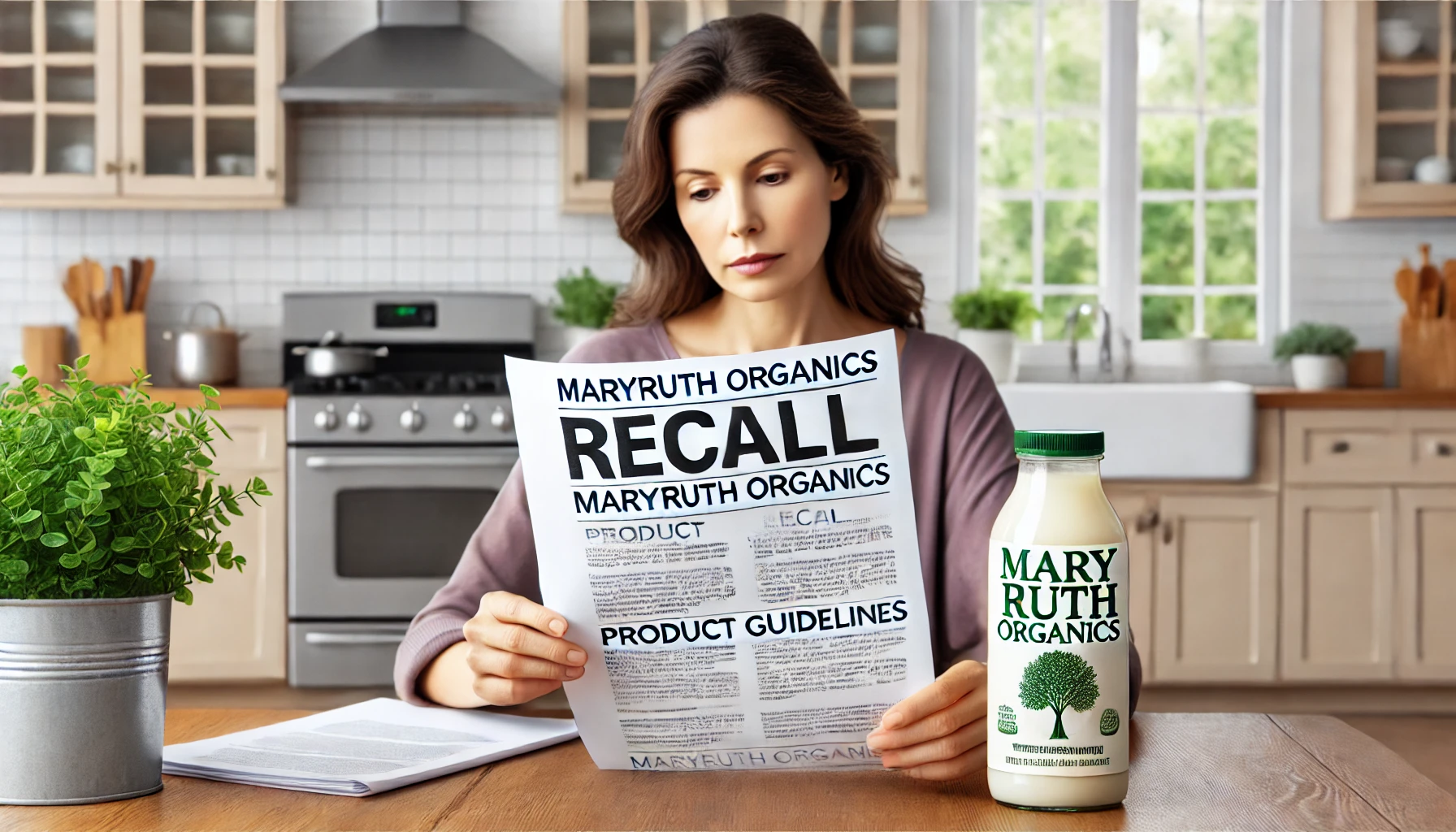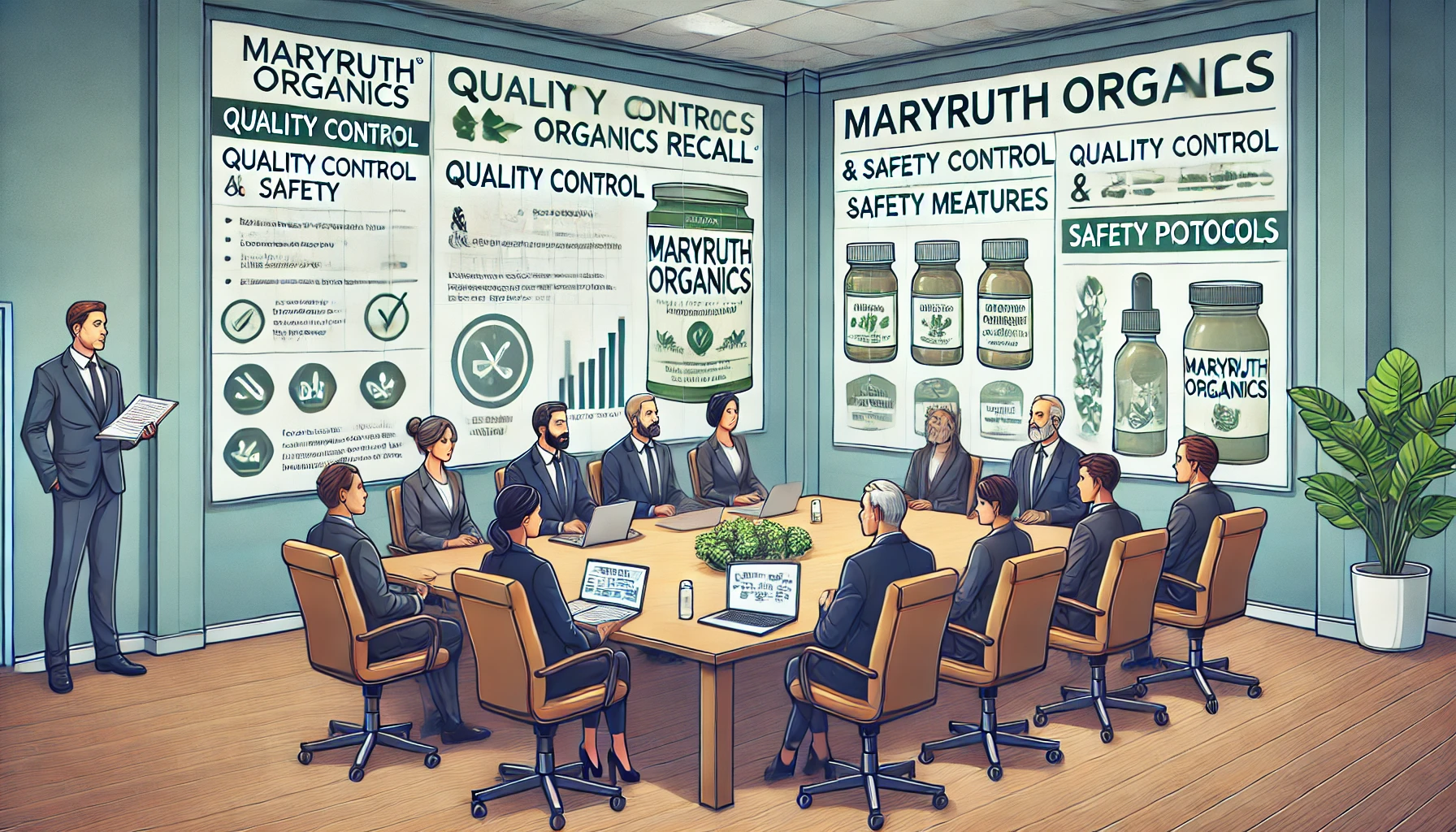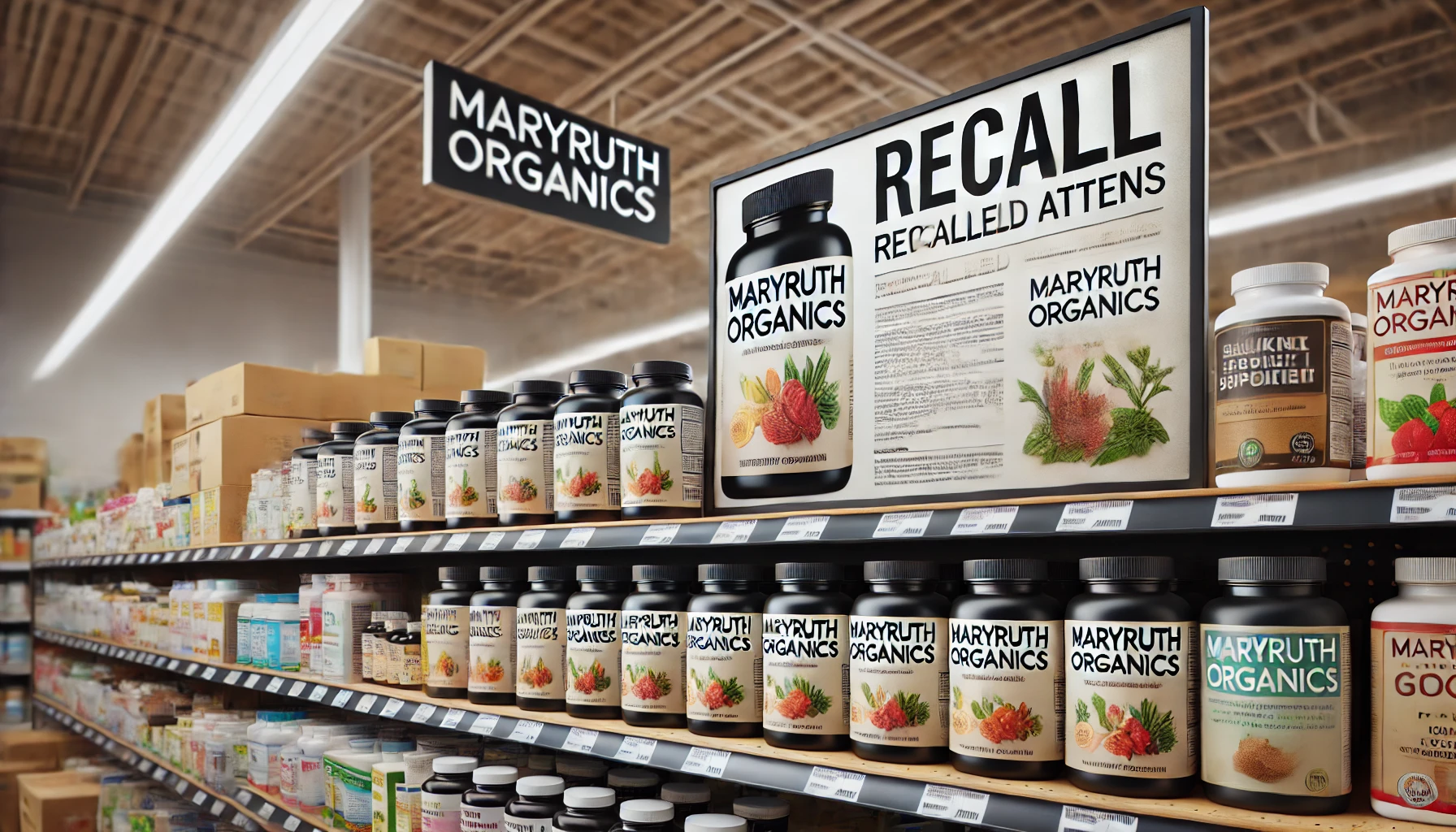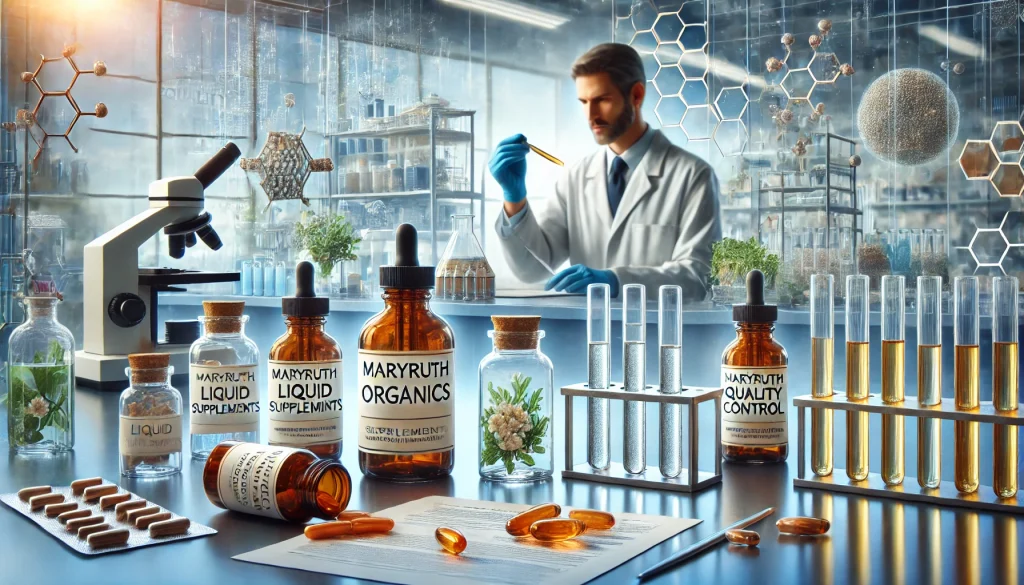The MaryRuth Organics Recall has garnered significant attention due to its potential impact on consumers. This recall highlights concerns about product safety and quality control in the wellness and supplement industry.
Triggered by reports of contamination, the MaryRuth Organics Recall specifically targets certain lots of infant liquid probiotics. The company has acted swiftly to inform consumers and remove the affected products from the market.
Regulatory authorities, including the FDA, are closely monitoring the situation. Consumers are advised to review their purchases and follow guidance from both the company and health officials regarding the MaryRuth Organics Recall.
Potential Health Risks Associated with Contaminated Infant Probiotics
Contaminated infant probiotics, such as those in the MaryRuth Organics Recall, can pose serious health risks, especially to vulnerable populations like infants. Contamination often involves harmful microorganisms, such as bacteria or mold, that can lead to infections or other health complications.
Infants exposed to contaminated probiotics may develop gastrointestinal issues, including diarrhea, nausea, or vomiting. In more severe cases, the contamination can cause systemic infections, particularly in babies with weakened immune systems.
The risks depend on the type and level of contamination. For instance, the presence of harmful bacteria could lead to conditions like sepsis, a potentially life-threatening complication. Long-term exposure may also disrupt an infant’s developing gut microbiome.
To mitigate these risks, parents should immediately stop using any affected products identified in the recall. Consulting a pediatrician is critical if a child has consumed a recalled probiotic and is showing unusual symptoms.
Identifying Affected Lots in the MaryRuth Organics Probiotic Recall
The MaryRuth Organics Recall specifically involves certain lots of infant liquid probiotics that were found to contain harmful contaminants. The affected lots are identifiable through unique batch numbers printed on the product packaging.
Consumers should check the expiration date, manufacturing date, and lot number against the information provided in the company’s official recall notice. This ensures that unaffected products are not mistakenly discarded.
Table: Key Details of Affected Lots
| Lot Number | Expiration Date | Product Name |
| 12345A | 12/2024 | Infant Liquid Probiotic |
| 67890B | 03/2025 | Liquid Probiotic (Unflavored) |
The company has also provided a hotline and online resources for consumers to verify their product’s safety. Retailers are urged to remove these specific lots from their shelves to prevent further distribution.
If you possess a product from an affected lot, immediately discontinue use and follow the company’s return or disposal instructions. Avoid giving the product to others.
Distribution Channels Impacted by the MaryRuth Organics Recall
The MaryRuth Organics Recall has disrupted several distribution channels, including both physical and online retail outlets. Products were sold through major retailers like Walmart, Target, and specialized health stores, as well as via e-commerce platforms such as Amazon and the MaryRuth Organics website.
Online sales were significantly affected, as contaminated lots were distributed through multiple platforms. Amazon and other major marketplaces have flagged affected products and issued alerts to customers who purchased them.
Wholesale distributors who supply smaller retailers have also been impacted. This has created a ripple effect, as smaller stores may lack the capacity to manage recalls efficiently. Many stores have also initiated return policies to facilitate consumer refunds or exchanges.
The company has coordinated with retailers and distributors to streamline the removal process. Consumers should remain vigilant and double-check products purchased before the recall notice.
Consumer Guidance: Steps to Take if You Have Recalled MaryRuth Organics Products
If you own a product included in the MaryRuth Organics Recall, there are several steps you should follow to ensure safety and compliance with the recall notice. Acting promptly can prevent potential health risks.
Verify the Product: Check the packaging for lot numbers, expiration dates, and batch codes. Compare these with the information provided by MaryRuth Organics in their official recall announcement.
Discontinue Use: If your product matches the recall details, stop using it immediately. Do not attempt to use any portion of the product, even if it appears safe.
Contact the Company: Reach out to MaryRuth Organics through their hotline or online portal. They will provide instructions for returns, refunds, or safe disposal of the product.
Seek Medical Advice: If the product has already been consumed, monitor for symptoms such as gastrointestinal distress or allergic reactions.
Inform Others: Share recall information with anyone who may have purchased the product, especially caregivers and parents of infants. This helps prevent further usage of contaminated items.
MaryRuth Organics has emphasized its commitment to customer safety by offering refunds and additional support during the recall process. Consumers are encouraged to stay informed through the company’s updates.
Company Response: MaryRuth Organics’ Actions Following the Recall
MaryRuth Organics responded swiftly to the recall by initiating a comprehensive investigation into the source of contamination. The company prioritized transparency and promptly issued a recall notice to ensure consumer safety.
One of the key actions taken was the establishment of a dedicated hotline and online portal for customer support. These platforms provided clear instructions on how to identify affected products and process refunds or exchanges.
MaryRuth Organics has also implemented stricter quality control measures. These include enhancing testing protocols and collaborating with third-party laboratories to verify product safety before distribution.
The company has actively communicated updates via email, social media, and their website. This proactive approach has helped keep consumers informed about ongoing developments and next steps.
To rebuild trust, MaryRuth Organics has announced plans for additional safety certifications and audits. These efforts aim to reassure consumers about the quality of their products moving forward.
Regulatory Oversight: FDA’s Role in the MaryRuth Organics Probiotic Recall
The FDA has played a critical role in the MaryRuth Organics Recall, ensuring that the process adheres to regulatory standards. The agency’s involvement began when reports of contamination were first identified, prompting a thorough review of the company’s manufacturing processes.
As part of its oversight, the FDA required MaryRuth Organics to provide detailed documentation on the affected products, including production logs, quality control measures, and distribution records. This ensured that the scope of the recall was comprehensive.
Chart: FDA’s Key Actions in the Recall Process
| Action | Objective |
| Product Testing | Confirm contamination levels |
| Issuing Recall Classifications | Assess public health risks |
| Monitoring Compliance | Ensure all affected products are removed |
The FDA also issued a public alert to inform consumers and healthcare providers about the risks associated with the contaminated products. This helped spread awareness and encouraged timely action.
Through continuous monitoring, the FDA ensures that MaryRuth Organics complies with recall protocols, including the disposal of affected inventory and corrective measures to prevent future issues.
Legal Implications Stemming from the MaryRuth Organics Recall
The MaryRuth Organics Recall has potential legal implications, particularly concerning consumer protection and product liability. If customers experience adverse effects from using contaminated products, they may pursue legal action against the company.
Regulatory non-compliance is another area of concern. If MaryRuth Organics is found to have violated safety standards, it could face penalties, including fines or sanctions imposed by agencies like the FDA.
Class-action lawsuits are a common legal outcome in such cases. These lawsuits allow multiple affected consumers to seek compensation for damages, including medical expenses or loss of trust in the brand.
The recall could also lead to contractual disputes with retailers and distributors. Businesses impacted by the recall may seek compensation for financial losses incurred due to product removal and loss of sales.
To mitigate these risks, MaryRuth Organics has sought legal counsel and is cooperating fully with regulatory authorities. The company’s transparent approach may help minimize long-term legal repercussions.
Impact on Retailers: How Major Outlets Handled the MaryRuth Organics Recall
The MaryRuth Organics Recall created significant disruptions for major retailers, including stores like Walmart, Target, and Whole Foods. These outlets acted promptly to remove affected products from their shelves and online listings.
Retailers implemented return policies to help consumers process refunds or exchanges for recalled items. This proactive approach aimed to maintain customer satisfaction and protect their reputation during the recall.
Online platforms like Amazon flagged the affected products and issued alerts to customers who had purchased them. This automated system ensured that a wide audience was informed quickly.
Small retailers faced unique challenges in handling the recall. Unlike larger outlets, these stores often lack the infrastructure to process large-scale returns or issue immediate refunds.
MaryRuth Organics supported retailers by providing detailed recall instructions and offering to reimburse financial losses. This collaborative effort helped minimize the overall impact of the recall on businesses.
Public Reaction to the MaryRuth Organics Infant Probiotic Recall
The MaryRuth Organics Infant Probiotic Recall sparked a range of reactions from the public. Many parents expressed concerns over the safety of infant products, emphasizing the trust placed in wellness brands to prioritize quality.
Social media became a platform for widespread discussion. Some consumers praised MaryRuth Organics for its transparency and quick response, while others criticized the oversight that led to the contamination.
Parents whose children consumed the affected products were particularly vocal. Reports of mild symptoms or concerns about potential health risks circulated, prompting heightened awareness among caregivers.
Consumer advocacy groups also highlighted the recall, calling for stricter regulations and oversight in the probiotic and supplement industry. This added to the growing demand for more robust safety standards.
The recall has reinforced the importance of vigilance when purchasing products for infants. Many parents have shifted their focus to brands with rigorous safety certifications and transparent manufacturing practices.
Preventative Measures: Ensuring Safety in Infant Probiotic Products
Ensuring the safety of infant probiotic products involves adopting stringent quality control measures throughout the manufacturing process. Companies must prioritize robust testing protocols to identify contaminants early.
Sourcing high-quality raw materials is crucial. Reputable suppliers with a proven track record of safety and compliance can significantly reduce the risk of contamination in probiotics.
Bullet Points: Key Preventative Measures
- Implement third-party testing at multiple production stages.
- Use tamper-evident packaging to ensure product integrity.
- Conduct routine audits of manufacturing facilities to maintain safety standards.
Educating consumers about proper storage and usage is another preventative step. Probiotics, being sensitive to temperature and humidity, require specific handling to remain effective and safe.
Collaboration with regulatory authorities is essential. By adhering to guidelines from organizations like the FDA, companies can enhance product reliability and maintain consumer trust.
Lessons Learned from the MaryRuth Organics Recall Incident
The MaryRuth Organics Recall serves as a significant learning experience for the supplement industry. One of the primary lessons is the critical importance of proactive quality control measures to prevent contamination.
This incident underscores the need for transparency. MaryRuth Organics’ open communication helped mitigate some of the potential fallout, highlighting the value of honesty in crisis management.
Another takeaway is the role of consumer education. Clear labeling and instructions can help parents make informed decisions and reduce the risks associated with improper product use.
The recall has also highlighted gaps in regulatory oversight within the supplement industry. Stricter compliance and more frequent inspections could prevent similar incidents in the future.
Lastly, it demonstrates the importance of crisis preparedness. Having a recall plan in place can help companies respond swiftly and effectively to protect public health and brand reputation.
Future Outlook for MaryRuth Organics Post-Recall
Despite the challenges posed by the recall, MaryRuth Organics has the potential to recover and rebuild its reputation. The company’s commitment to improved safety measures positions it to regain consumer trust.
Investments in enhanced quality control and third-party certifications are expected to reassure consumers of product safety. These steps could also set a new standard within the industry.
MaryRuth Organics has announced plans to expand its product range while maintaining a focus on transparency. By emphasizing their response to the recall, they aim to re-establish themselves as a trusted brand.
The company’s outreach efforts, including customer support initiatives and educational campaigns, are likely to foster loyalty among existing and new consumers.
Looking forward, the recall could ultimately serve as a turning point for MaryRuth Organics, strengthening its commitment to quality and positioning the brand for sustainable growth in a competitive market.
Last Word
The MaryRuth Organics Recall serves as a critical reminder of the importance of safety and transparency in the wellness industry. While the recall caused disruption and concern among consumers, it also showcased the company’s commitment to addressing the issue and prioritizing public health.
This incident highlights the need for stricter quality control and industry-wide vigilance, particularly for products designed for vulnerable populations like infants. Moving forward, MaryRuth Organics has the opportunity to learn from this experience and reinforce its position as a trusted brand through continuous improvement and open communication.
Ultimately, the recall is not just a challenge but a chance for growth, both for MaryRuth Organics and the supplement industry as a whole. By taking proactive measures and fostering consumer trust, the company can emerge stronger and more resilient in the competitive market.




